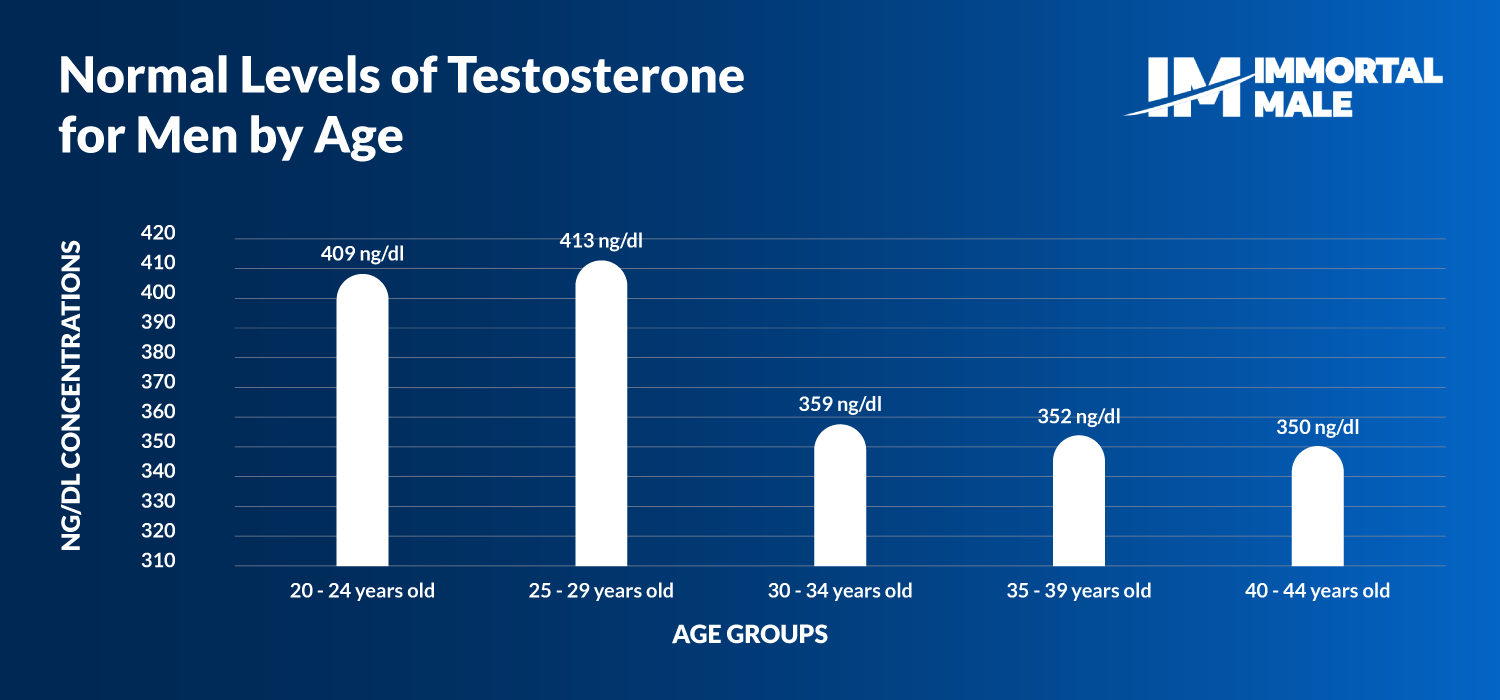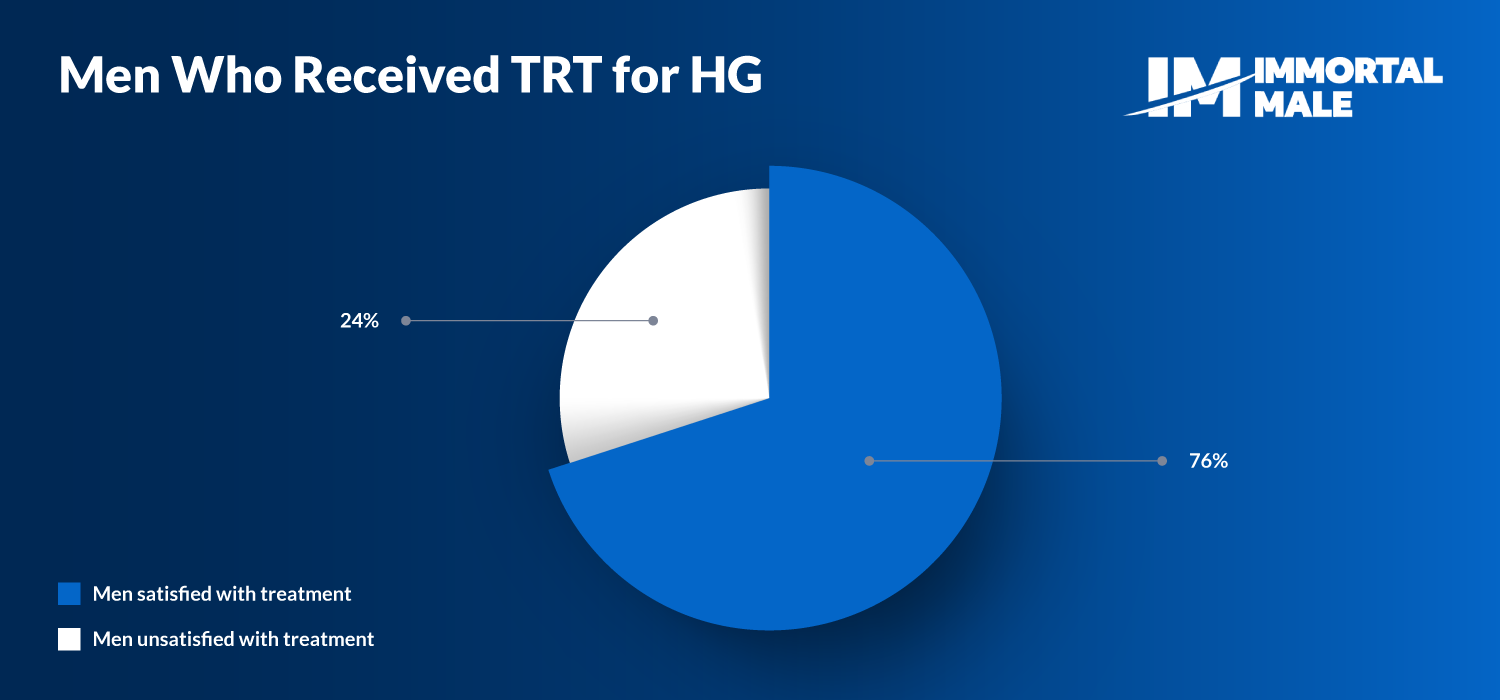Testosterone is the major sex hormone in males. Testosterone is essential for the development of male sex characteristics and for the maintenance of the secondary male characteristics associated with masculinity.1 Testosterone concentrations in the body naturally decline as men age. Between 10-40% of men around the globe have been diagnosed with testosterone deficiency.2
Read on to learn more about this type of treatment and the various benefits of TRT.
Testosterone replacement therapy, or TRT, is a treatment for the symptoms of low testosterone, also known as hypogonadism. In 2013, an estimated 2.3 million American men began testosterone treatment.3 There are many benefits of TRT. Testosterone treatment provides the body with an external source of testosterone to help bring levels back into a normal range.

There are several indicators of low testosterone that patients should consider bringing up to a medical care provider. Those suffering from low testosterone might look into the benefits of TRT.
Low testosterone negatively impacts mental and emotional health. The signs of low testosterone often manifest in the mind as:
Low testosterone also can cause physical decline and imbalance. The signs of low testosterone in the body may appear as:

Men who undergo chemotherapy or radiation therapy for cancer treatment may experience temporary reduced testosterone production and sperm production.10 Disclosing recent cancer treatment dates to a medical care provider is essential for an accurate diagnosis of hypogonadism. In a study of 209 men treated with cytotoxic chemotherapy for cancer, 32% of patients had testosterone concentrations below the normal range following treatment.11

In a 5-year follow-up of testosterone levels in men following treatment for testicular cancer, over 13% of patients exhibited testosterone concentrations below the normal range.12 Impaired testosterone production following serious treatment for cancer is common. For men who have a history of testicular, prostate, or male breast cancer, the symptoms can be properly evaluated in combination with the measurement of serum testosterone concentration to determine if testosterone treatment is an appropriate course of action. This is when the benefits of TRT can be life changing.
A bilateral orchiectomy or orchidectomy is the surgical removal of one or both testicles. An orchiectomy may be performed as a part of cancer treatment. Following an orchiectomy, serum testosterone concentrations are expected to be less than 50 ng/dL.13
Men who have sustained an injury to both testicles may have reduced testosterone production as a result.14 Testosterone production will not recover following a severe testicle injury, but testosterone replacement therapy serves as a good source of external testosterone for the body.
Delayed puberty is characterized by the absence of testicular enlargement past the age of 14 , and about 2% of the adolescent population is estimated to be affected by delayed puberty.15 In the absence of testicular enlargement, testosterone production is lower than normal. Adults who experienced delayed puberty in adolescence may have lower concentrations of serum testosterone in adulthood. If the symptoms of hypogonadism are also present, testosterone replacement therapy may be able to offer relief.
Men who have hypogonadism have fewer endothelial progenitor cells, which are essential for the repair of damaged endothelial cell layers. In a study of patients taking testosterone replacement therapy for 6 months, the levels of endothelial progenitor cells were significantly increased.18 These results are indicative of a positive relationship between the maintenance of endothelial health and replacement testosterone therapy.
For hypogonadal men who have also been diagnosed with osteoporosis, it may be encouraging to hear that the benefits of testosterone include improved bone mineral density and prevention of further declines in bone strength.21
Issues with libido and energy levels are a common concern for hypogonadal men. Fortunately, there is evidence that testosterone replacement therapy improves libido and erectile function in hypogonadal men.25A meta-analysis of studies exploring the impact of testosterone found that testosterone therapy improved erectile function, libido, intercourse satisfaction, and overall sexual satisfaction in men diagnosed with hypogonadism.26
Understanding the benefits of TRT on mental health includes evaluating the role of TRT replacement therapy on patient mood before and after testosterone therapy. The T-Trials found that testosterone therapy is associated with small increases to mood in patients with low testosterone.28 In combination with the other effects of testosterone replacement therapy, even small improvements to mood can yield large benefits to other facets of a patient’s whole health and sense of well-being.
One of the benefits of TRT is that results will be seen within a short period of time. It takes about 6 months of regular TRT injections to see the maximum advantages of taking testosterone.29 The benefits of testosterone therapy will be seen prior to the 6-month marker, but they will not have yet peaked.
Continuing TRT treatment beyond the 6-month mark will ensure that patients continue to see TRT benefits. Patients who decide to discontinue testosterone therapy generally see the return of hypogonadism symptoms. TRT exists to treat the symptoms of hypogonadism, it does not change the amount of testosterone produced by the body.
Testosterone replacement therapy can help improve mental health in patients who have poor mental health as a result of hypogonadism. Testosterone therapy is not likely to improve mental health in patients who have diagnosed mental health conditions that are unrelated to hypogonadism. Read on to learn more about the mental benefits of TRT.
Depressive symptoms are linked to hypogonadism. There is evidence that TRT treatment can help to alleviate the symptoms of depression in men who are experiencing depression as a result of hypogonadism.31 Moreover, a thorough meta-analysis of the effects of testosterone replacement on major depressive disorder found that there was a significant positive effect of TRT in patients diagnosed with both major depressive disorder and hypogonadism.32

Immortal Male provides hypogonadal men with a testosterone replacement therapy program that is affordable and patient-centric. The Immortal Male TRT therapy program focuses on the safety of testosterone replacement therapy and on maximizing the benefits of TRT injections. The testosterone replacement therapy cost with Immortal Male starts with a $99 one-time charge for an At-Home Hormone Test. This test reviews hormone levels in the body, including total testosterone, estradiol, and prostate-specific antigen.
Immortal Male is an online clinic that helps men optimize their hormones.
As part of your membership and as medically indicated, physicians prescribe medications, and recommend supplements that are delivered to you from the comfort of your home.